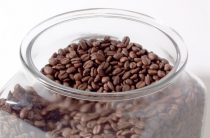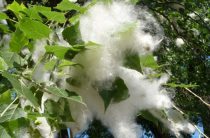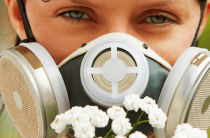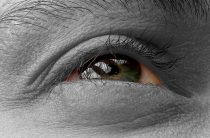Various types of allergies have become a common disease. Many things that surround us can serve as an allergen. The most common reaction to these components is allergic rhinitis. This term is called inflammation of the nasal mucosa in the process of exposure to an allergen. Such a sign is often ignored, so allergic rhinitis develops into a chronic form. To prevent this, you should identify the problem, the causes in a timely manner and contact a specialist for help in prescribing treatment.
Causes of allergic rhinitis
The basis of this disease is high sensitivity, as a result of which allergic rhinitis occurs at the slightest irritation. Such a reaction can develop in a matter of minutes, and can withstand an incubation period of several days. An allergy to pollen can cause irritation of the nasal mucosa. Actually, in most cases it is hay fever that causes it.
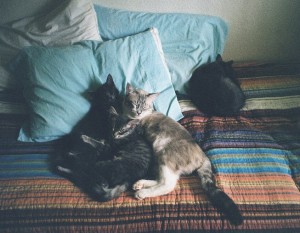 Allergic rhinitis often occurs in pet lovers. This disease is considered to be an allergy to cat hair. In fact, it’s not your pet’s coat that provokes the reaction at all. The thing is that the body of cats produces a certain protein, which is excreted along with the saliva and urine of the animal. Licking himself, the harmful component gets on his skin and coat. And a person, inhaling it, thinks that it is the cat's cover that is to blame. Protein also spreads around: on furniture, clothes, dishes, carpets, linen. So even such fashionable hairless breeds of cats will not be able to protect you from the manifestation of the disease - allergic rhinitis.
Allergic rhinitis often occurs in pet lovers. This disease is considered to be an allergy to cat hair. In fact, it’s not your pet’s coat that provokes the reaction at all. The thing is that the body of cats produces a certain protein, which is excreted along with the saliva and urine of the animal. Licking himself, the harmful component gets on his skin and coat. And a person, inhaling it, thinks that it is the cat's cover that is to blame. Protein also spreads around: on furniture, clothes, dishes, carpets, linen. So even such fashionable hairless breeds of cats will not be able to protect you from the manifestation of the disease - allergic rhinitis.
House dust can cause rhinitis. Dust is a collection of hair, dead skin cells, food debris, microscopic mites. Naturally, when these components are inhaled, irritation of the nasal mucosa occurs. And from time to time allergic rhinitis develops. Causes of house dust allergy:
- Upholstered furniture and toys;
- Books;
- Small interior items;
- Carpets;
- Thick curtains;
- Bed sheets.
Among the causes of rhinitis, the use of certain medications can also be noted. The causes of such a runny nose: antibiotics, hormonal drugs, drugs to normalize blood sugar, herbal medicines. An allergy occurs to the individual components that make up the drug. Therefore, before using them, you should definitely consult a doctor.
Some foods contribute to the occurrence of rhinitis. The most allergenic foods include:
- Citrus;
- Smoked and salty;
- Fatty fried foods;
- Chocolate;
- Bakery products;
- Sausages;
- Pasta;
- Alcoholic drinks;
- Milk and eggs.
In both adults and children, rhinitis can appear as a result of insect bites or exposure to mold fungi. As you can see, almost everything that surrounds us can be attributed to the risk zone.
Symptoms of allergic rhinitis
Runny nose is manifested by a familiar method. Symptoms of allergic rhinitis may include:
- Discharge from the nasal cavity. With their allergic origin, the discharge is transparent, watery.
- Difficulties in breathing. Such difficulties mainly occur at night.
- Runny nose accompanied by bouts of sneezing.
- Itching in the nasal cavity.
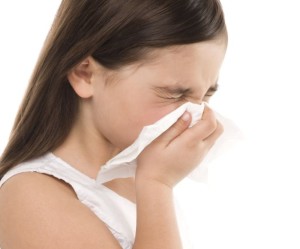 Allergic rhinitis aggravates the general condition of the patient. Often, rhinitis is accompanied by fever, swelling of the face, inflammation of the lymph nodes, lethargy and fatigue. If timely treatment is not carried out, conjunctivitis and otitis media may develop.
Allergic rhinitis aggravates the general condition of the patient. Often, rhinitis is accompanied by fever, swelling of the face, inflammation of the lymph nodes, lethargy and fatigue. If timely treatment is not carried out, conjunctivitis and otitis media may develop.
Allergic rhinitis can be a wound of severity. With a mild course, the symptoms are not very pronounced, there is only a slight nasal congestion or runny nose. In the case of moderate severity, the patient begins to show discharge, sneezing and itching. In severe cases, normal life activity is disrupted, sleep patterns are disrupted.
Treatment of allergic rhinitis
Therapists often hear this question: how to treat allergic rhinitis? When treating any disease, it is very important to consult a doctor in a timely manner. Only a specialist will help solve the problem. In order to determine the true origin of the common cold, it is worth going through some testing and analysis. Rhinitis is diagnosed by taking skin tests. This method is the most informative. In this case, small scratches are made on the skin of the patient, both in adults and in children. Solutions with possible allergens are dripped onto them, and a reaction of the skin is observed. Such a diagnosis is contraindicated during pregnancy.
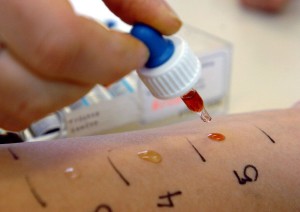 The study necessarily takes into account the results of a blood and urine test. It will show if there is a problem in case of food allergy. An equally effective method for diagnosing allergic rhinitis is taking a swab from the nasal cavity. Microscopic examination will reveal the real allergen. After a comprehensive examination, the doctor will prescribe the most optimal treatment in a particular case.
The study necessarily takes into account the results of a blood and urine test. It will show if there is a problem in case of food allergy. An equally effective method for diagnosing allergic rhinitis is taking a swab from the nasal cavity. Microscopic examination will reveal the real allergen. After a comprehensive examination, the doctor will prescribe the most optimal treatment in a particular case.
Recently, immunotherapy has become a popular method of treatment. It involves the introduction of a small dose of the allergen under the skin. Harm from this method is excluded, since the dose of the irritant is negligible. Thus, the body's immune system gradually gets used to it and begins to give the correct adequate response to the component. The production of antibodies begins. The disadvantage of immunotherapy can be called the duration of time. Full recovery requires one to two years of such injections.
After identifying the cause of the disease, the treatment of allergic rhinitis takes place by eliminating the source of the problem. Means that fight allergies are called antihistamines. There are three generations of them. The youngest is the first. It has a long list of side effects. Their effectiveness is high, but they are quickly excreted from the body, so the frequency of use reaches 4-5 times a day. Third-generation antihistamines with a minimum number of contraindications are recognized as the most powerful. The first generation includes:
| Diazolin | It has a mild hypnotic effect. Relieves allergy symptoms such as runny nose, conjunctivitis, urticaria. Side effects affect the mucous membrane of the stomach and intestines, a rash of the skin and a headache are possible. |
| Fenkarol | The drug is prescribed for any manifestations of allergies. Non-addictive, therefore very effective. Blocks the production and release of histamine. It can provoke disturbances in the work of the heart, liver, stomach. It also has a sedative effect on the central nervous system. |
| Suprastin | The remedy relieves allergic rhinitis, lacrimation, urticaria, Quincke's edema, both in adults and in children. In childhood, allowed from birth. May cause dizziness and inhibition of reactions. |
| Tavegil | The drug is available in the form of tablets and injections. It is used for mild manifestations of allergies (runny nose, lacrimation, redness) and severe (anaphylactic shock, Quincke's edema). |
| Diphenhydramine | Doctors use at the initial stage of development of such manifestations as allergic rhinitis, conjunctivitis, urticaria, puffiness. Not recommended in childhood and contraindicated in pregnancy. |
The second generation has the following advantages:
- Minimal sedation;
- No decrease in physical activity;
- The effect of the drug is observed throughout the day;
- From drugs there is no addiction;
- After cancellation, the effect persists for up to a week.
There are some contraindications to their use: problems with the work of the liver, kidneys, heart. Problems may arise with individual intolerance to individual components. The most popular means include: Claridol, Clarisens, Claritin, Kestin, Rupafin. Among the representatives of the third generation, experts note: Treksil, Gismanal, Telfast, Zirtek.
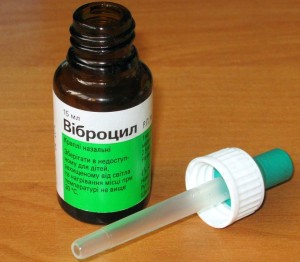 To eliminate allergic rhinitis in a short period of time, nasal drops and sprays should be used. Such therapeutic agents, as a rule, relieve nasal congestion, eliminate swelling of the mucous membrane, and release nasal breathing. Drops and sprays are designed to protect the shell from repeated exposure to the allergen on it.
To eliminate allergic rhinitis in a short period of time, nasal drops and sprays should be used. Such therapeutic agents, as a rule, relieve nasal congestion, eliminate swelling of the mucous membrane, and release nasal breathing. Drops and sprays are designed to protect the shell from repeated exposure to the allergen on it.
Treatment of allergic rhinitis depends on the severity of the disease. Assign these types of drops: vasoconstrictor, hormonal, antihistamine, nasal lavage. The first two types are attributed only in extreme cases, when other drugs are powerless. They are characterized by high speed and efficiency. Within a few minutes the runny nose is gone. The disadvantages include the fact that they are allowed to use no more than five days. The nasal cavity gets used to the components, irritation of the mucous membrane begins, and the runny nose is even more aggravated. In addition, hormonal drops can affect the functioning of the endocrine system. Vasoconstrictive and hormonal drops and sprays are prescribed only by a doctor. Frequently used ones include:
- Vibrocil;
- Naphthyzin;
- Tizin;
- Nasonex;
- Nasobek;
- Nazol;
- Flixonase.
To have a direct effect on the allergen itself, antihistamine drops and sprays are used. The spray form allows you to strictly observe the indicated dosage, which is very important. They are designed to have a positive effect on local immunity, increasing its resistance. Reduce the body's sensitivity to harmful substances. They are used by both adults and children. Allergic rhinitis can be treated with such drugs:
- Cromoglin;
- Ifiral;
- Cromosol;
- Vilozen;
- Histimet.
As for nasal rinses, they are considered the safest at any age and with any concomitant diseases. It really is. They do not contain any chemicals or additives. The main ingredients are sea water and salt. It is these drugs that are most often prescribed in childhood with rhinitis, even for infants. Getting into the nasal cavity, the drug cleanses it of excess sputum, eliminates the runny nose, and makes breathing easier. This creates a shell that serves as a barrier to re-exposure to the allergen. These drugs contribute to the rapid healing of the mucosa and its rapid recovery. Among them are:
- Quicks;
- Aqua Maris;
- But-salt;
- Humer;
- Aqualor;
- Marimer;
- Dolphin.
It is very important to eliminate all causes of allergic rhinitis from the patient's environment as soon as possible. Indeed, even with high-quality treatment, the effect will be practically unattainable if the body is exposed to an allergen during therapy.
Treatment of allergic rhinitis with folk methods
Traditional medicine offers a large number of recipes for the treatment of allergic rhinitis at home. They are very effective as they have been tested over the years. It is very easy to prepare saline solution. To do this, you need to dilute one tablespoon of salt in a glass of warm water. Washing the nose with a solution is done twice a day. This procedure contributes to the rapid restoration of the nasal mucosa and the release of the upper respiratory tract from sputum.
The healing properties of aloe or Kalanchoe juice for allergic rhinitis have long been known. You can prepare a decoction for internal use using the following ingredients:
- 5 spoons of centaury;
- 4 spoons of St. John's wort;
- 4 tablespoons of rose hips;
- 3 tablespoons of dandelion root;
- 2 spoons of horsetail.
 All components are carefully ground and mixed. Just one spoon of this mixture is poured with 0.5 liters of water (simple boiled) and infused for 24 hours. After this time, this medicine must be put on fire and brought to a boil, then removed from the stove, wrapped and left to infuse for 4-5 hours. The drug is drunk approximately 150 grams three times a day. The course of such treatment lasts up to six months. A decoction will help not only get rid of allergic rhinitis, but also eliminate allergies as such.
All components are carefully ground and mixed. Just one spoon of this mixture is poured with 0.5 liters of water (simple boiled) and infused for 24 hours. After this time, this medicine must be put on fire and brought to a boil, then removed from the stove, wrapped and left to infuse for 4-5 hours. The drug is drunk approximately 150 grams three times a day. The course of such treatment lasts up to six months. A decoction will help not only get rid of allergic rhinitis, but also eliminate allergies as such.
To quickly relieve swelling of the nasal mucosa with rhinitis, a procedure such as inhalation should be carried out. It is also the prevention of bronchial asthma. To do this, mix mint, lime blossom, chamomile and oregano in the same amount. Pour 6 tablespoons of the mixture with one liter of water and boil. After letting the decoction brew for about 20 minutes, wrapping yourself in a towel, breathe in the vapors of this decoction. Beforehand, you can drip a few drops of eucalyptus essential oil. As a result of such simple actions, allergic rhinitis disappears in a short period of time.
